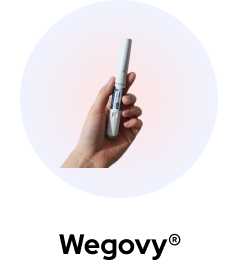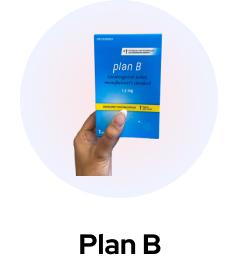If you’ve been curious about Ozempic and its effects, you’ve probably asked yourself a very important question: does this medication really work?
In this article we’ll cover:
- What Ozempic is
- An overview of Ozempic
- The types of Ozempic available
- Everything you need to know about injectable Ozempic
- Everything you need to know about oral Ozempic
- The benefits of Ozempic
- Clinical studies and trials on Ozempic
- Real review of Ozempic from patients
- Before and after of Ozempic results
- Whether you should use Ozempic
- Frequently asked questions.
Read on to learn more!
While Ozempic is primarily prescribed to treat patients suffering from type-2 diabetes, it is also used to treat chronic obesity and weight-related conditions in those with a BMI of 27 or over.
This medication is particularly effective for weight management and helping people reach their goal weight, due to the way it is able to target a range of different factors, such as appetite, gastric emptying, and satiety.
Ozempic has also been known to reduce intense food cravings, which can help people consume more balanced and healthier meals.
When paired with a healthy diet and good exercise routine, Ozempic can be an extremely effective medication to assist with body weight management for anyone who needs intervention.
Review Ratings of Ozempic
We identified three popular review platforms to get the most accurate usage success rate of Ozempic.
Firstly, on Drugs.com, Ozempic received a score of 6.4 out of 10 for type 2 diabetes based on user reviews. Many users reported significant weight loss and better blood sugar control, though some experienced side effects like nausea and digestive issues.
On Reddit’s r/loseit community, user reviews were mixed. Some users shared positive experiences, noting substantial weight loss and appetite suppression, while others mentioned moderate to severe side effects, including gastrointestinal discomfort. Overall, the reviews leaned towards positive outcomes for weight management.
Moving on to WebMD, Ozempic received an overall rating of 3.6 out of 5 stars. Users rated it highly for effectiveness, with many noting improvements in weight management and blood sugar levels. However, side effects were a common concern, particularly gastrointestinal issues. The medication was recommended by most users despite the side effects.
In summary, Ozempic has received generally positive reviews for its effectiveness in weight management and diabetes control, However, side effects are a common theme across different platforms.
Overview of Ozempic
Ozempic was developed in 2012 by pharmaceutical company Novo Nordisk. It utilizes the active ingredient semaglutide, which can also be found in the medications Rybelsus and Wegovy.
Semaglutide acts as a glucagon-like peptide-1 (GLP-1) receptor agonist. This means that semaglutide is able to mimic the GLP-1 hormone, which is naturally released in the gut after eating.
By doing this, semaglutide is able to recreate all of the effects that the GLP-1 hormone does, but at an increased rate.
These effects include functions that can greatly aid in the management of type-2 diabetes and weight-related conditions, such as blood glucose control, reduced A1C level, appetite suppression, increased satiety, and improved cardiovascular health.
Types of Ozempic
When it comes to the different types and ways of administering Ozempic, a subcutaneous injection is currently the only approved way to take this medication in Canada.
Rybelsus is another form of semaglutide, also marketed by Novo Nordisk, and does come in an oral form. It has also been proven effective, though its efficacy is not as high as the injectable form.
Injectable Medication
A subcutaneous injection is currently the only approved way to administer Ozempic, and is generally the recommended way of taking semaglutide.
This method of administering semaglutide is often preferred over an oral form by patients and healthcare professionals alike, for a number of reasons.
For one, the injection is to be administered just once a week, as opposed to once a day as is the case with the oral formulation. This can be done at different times of the day each week, and on either an empty or full stomach.
The total dosage with injectable semaglutide is also lower overall, and it may be more effective faster, as it is able to be absorbed more quickly into the bloodstream.
Oral Medication
Rybelsus, an oral formulation made by the same pharmaceutical company as Ozempic, contains the same active ingredient of semaglutide.
This method of administering semaglutide is often reserved for those who struggle to or are unable to self-administer injections, or patients with a phobia of needles.
Although this is not the preferred treatment method due to the many strict rules and guidelines that must be followed when taking semaglutide orally, there is nothing wrong with this method.
Oral medication can be a great alternative for those who are unable to administer the weekly injection.
Review on Injectable Form of Ozempic
The injectable form of Ozempic is designed to be easy to use and efficient. Ozempic Pens, similar to an EpiPen, come pre-dosed with four doses (up to a month’s worth) of medication.
Your Ozempic dosage will generally start at 0.25 mg and be increased to a maintenance dose of 0.5 mg at the 4-week mark. If you need further blood glucose control, this may then be increased to either 1mg or 2mg (the highest dose).
How Does It Work?
The standard Ozempic injection is self-administered weekly via an Ozempic Pen. Your medical team will be able to demonstrate how to administer your Ozempic injection before your first dose, as well as talk to you about anything you may be concerned about.
If you are yet to start Ozempic and are interested in what to expect, or are looking for a refresher, here is how to administer the injectable form of Ozempic:
- Check your pen
Check the label and the medicine in your Ozempic pen. The solution inside the pen should be colorless.
- Attach a fresh needle
Tear the paper tab off the Ozempic pen and push and twist on the new needle until it is tight. Remove both needle caps.
- Check the flow
Twist the dose selector on the pen until the dose counter displays the flow check symbol. Press and hold the dose button until the counter turns to 0. Ensure that a drop appears at the tip of the needle.
- Inject
Insert the needle into your abdomen, thigh, or upper arm (the location of your injection site should be rotated weekly). Press and hold the dose button until the counter reaches 0, then count slowly to 6. Remove the needle from your skin.
- Cleanup
Carefully remove the used needle from your Ozempic Pen and dispose of it safely in a needle or sharps container. Replace the cap back on the pen.
If you have any questions regarding use of the Ozempic pen, consult the Ozempic Medication Guide and Instructions for Use or speak with your medical team, Nurse Practitioner, or pharmacist. You can also watch this handy video on the Novo Nordisk website.
Never share your Ozempic Pen with anybody else, even with a fresh needle, as this could spread infection.
What Are the Side Effects?
As is the case with most medications, Ozempic comes along with a range of side effects upon starting the medication.
Some commonly reported side effects of Ozempic are:
- Nausea
- Vomiting
- Abdominal pain
- Constipation
- Diarrhea
- Dizziness
- Fatigue
- Gas
- Headaches.
Side effects of the Ozempic injection specifically may also include some pain, tenderness, bruising, or swelling around the injection site.
There are also a number of more serious but rare side effects you may experience. These include:
- Pancreatitis (inflammation of the pancreas)
- Changes in vision (diabetic retinopathy)
- Low blood sugar (hypoglycemia)
- Kidney problems
- Gallbladder issues
- Severe allergic reactions
- Thyroid cancer.
If you experience any of these side effects, discontinue your use of Ozempic immediately and contact your medical team, or go directly to your local ER.
Review on Oral Form of Ozempic
Rybelsus, the brand name for an orally administered form of semaglutide, functions in largely the same way as injectable Ozempic, though there are differences in the way it’s administered.
How Does it Work?
While on the surface taking oral semaglutide may appear to be as simple as swallowing a pill, there are a variety of guidelines to follow in order to administer this medication correctly.
Here are some rules you will need to abide by when taking Rybelsus or other forms of oral semaglutide.
- Take one pill (or dosage prescribed) per day
- Ensure you are taking medication on an empty stomach
- Take with no more than 4 oz (120 ml) of plain water. Do not take with any other beverage
- Swallow the pill whole. Do not crush or chew
- Take pill at the same time each day
- After taking, wait at least 30 minutes before eating, drinking, or taking another medication.
While these guidelines may differ depending on your specific circumstance and the advice of your healthcare provider, these are the general rules to be followed when administering this medication orally.
Due to the strict guidelines that need to be followed when administering semaglutide orally, many patients prefer to take the medication via injection.
That being said, this method is just as effective, and is a great alternative if the Ozempic injection is not a viable option.
What Are the Side Effects?
The side effects for the orally administered semaglutide are largely the same as the side effects for the Ozempic injection. They are as follows:
- Nausea
- Vomiting
- Abdominal pain
- Constipation
- Diarrhea
- Dizziness
- Fatigue
- Gas.
Of course, an oral form of this medication rules out any side effects relating to pain or irritation due to the injection.
Those taking the oral formulation of semaglutide may notice slightly increased nausea due to being required to take this medication on an empty stomach.
As with the injectable form, more serious side effects include:
- Pancreatitis (inflammation of the pancreas)
- Changes in vision (diabetic retinopathy)
- Low blood sugar (hypoglycemia)
- Kidney problems
- Gallbladder issues
- Severe allergic reactions
- Thyroid cancer.
If you experience any of these side effects, discontinue your use of Ozempic immediately and contact your medical team, or go directly to your local ER.
Customer Feedback on Ozempic for Weight Loss
Patients liked Ozempic for its effectiveness in weight loss and blood sugar control. Reviewers commonly saw side effects such as nausea, digestive issues, and fatigue. Many users reported significant weight loss, but others experienced side effects that impacted their experience.
Specific Cases
- Positive Feedback:
- A reviewer on Drugs.com had notable positive benefits, losing 20 pounds in three months and noting it “really helped me control my appetite.”
- Another user shared, “I’ve been on Ozempic for 6 months and have lost 50 pounds. It’s been a game changer for me.”
- Negative Feedback:
- A reviewer from WebMD stated, “While I did lose weight, the nausea was unbearable. I had to stop taking it after a month.”
- Another user complained, “I had severe stomach cramps and fatigue. The side effects outweighed the benefits for me.”
Overall, many patients experienced positive outcomes with Ozempic for weight loss. However, significant side effects were a common complaint. These side effects affected the medication’s overall satisfaction.
There are a wide range of benefits that Ozempic can provide to both patients suffering from type-2 diabetes and those combating chronic obesity and weight-related conditions.
Let’s take a look at some of the key benefits that Ozempic can provide:
- Blood sugar control
One of the benefits that Ozempic is most often prescribed for is the medications ability to lower and control blood sugars.
The active ingredient in Ozempic, semaglutide, focuses on proteins located in the pancreas, which increase insulin production in the presence of high blood sugar levels. In turn, the insulin that it produces is able to combat high blood sugar and lower it to a healthy level.
- Improved cardiovascular health
Ozempic has gained approval as a medication that is able to significantly improve cardiovascular health. There is evidence to suggest that patients with type-2 diabetes can benefit from a decreased risk of cardiovascular disease and complications when taking Ozempic.
A two-year long trial in 2016 indicated that the active ingredient in Ozempic, semaglutide, was able to “significantly reduce the risk of the occurrence of a 3-component MACE endpoint consisting of cardiovascular death, non-fatal heart attack, or non-fatal stroke.”
- Better weight management
Ozempic is able to significantly aid in weight loss in three key ways: reducing hunger and appetite, delaying gastric emptying, and increasing satiety. A reduction in hunger and appetite is often one of the most noticeable effects of Ozempic and is able to encourage a change in diet, leading to better weight management.
Ozempic can also cause a delay in gastric emptying, which reduces the rate at which glucose appears in circulations and causes food to linger for longer in your stomach. Delayed gastric emptying has been known to contribute to notable weight management improvements.
Finally, Ozempic is able to provide an increased feeling of satisfaction after you eat. Increased satiety can help you stick to diet plans and avoid mindless snacking and overeating. This can be a great help when it comes to reaching your weight management goals and achieving a lower BMI.
Research and Studies on Ozempic
There has been a significant amount of research done on Ozempic and the variety of benefits that it can provide.
While many clinical trials are still underway due to the fact that Ozempic is still a relatively new medication, the research that has been conducted sheds some light on just how effective Ozempic can be.
Clinical Studies and Trials for Weight Loss Efficacy with Ozempic
In a two-year long trial, the effectiveness of semaglutide (the active ingredient in Ozempic) on body mass loss and weight management in patients with weight-related conditions was observed.
During the trial, semaglutide was able to help patients achieve significant, sustained body mass loss in the long-term. A notable reduction in body weight was observed at week 104 of the clinical trial in patients who were administered semaglutide.
Another clinical trial observing the role of semaglutide in body mass loss also found a significant, sustained reduction in patients who were administered weekly semaglutide injections.
Participants who were administered a 2.4 mg dose of semaglutide along with lifestyle changes were able to lose a significant amount of body mass compared to those who were given a placebo.
Reviews From Patients Using Ozempic for Weight Loss
For those with chronic obesity and weight-related conditions, Ozempic can be a huge help when it comes to losing weight in a sustainable manner.
Many people who have taken Ozempic in order to help with their weight loss journey have spoken about their experience on the medication.
Patient Opinions on Results Achieved with Ozempic
In one married couple’s experience taking Ozempic for weight loss, Michael and Susan found that Ozempic resulted in them feeling more satisfied while eating, leading to significantly improved weight management for both of them.
This increased feeling of satiety that Ozempic brought to them was able to help the couple combat overeating.
Reviews of Ozempic on WebMD also allow patients who have taken this medication to share their experience and the ways Ozempic has aided in their weight management journey.
Aside from positive reviews, there are also reports of some side effects upon starting Ozempic. Patients have experienced symptoms such as acid reflux, bloating, burping, and a lack of energy after starting this medication.
That being said, a lot of these side effects differ person to person, and are more commonly experienced at higher doses.
Ozempic is a medication intended for long-term use in order to treat chronic conditions. In most cases, Ozempic is to be taken indefinitely, meaning there is often not an “after” stage of weight management.
Suddenly coming off Ozempic can often result in patients regaining most of the weight lost while on the medication. That being said, clinical trials and observational research has been able to gather information on the rate of weight management while on Ozempic.
In one clinical trial of Ozempic that spanned two years, it was found that 1 mg of Ozempic in combination with lifestyle changes was able to bring about significant body mass loss compared to patients who only implemented lifestyle changes.
Patients who took Ozempic were able to lose an average of 4.9 kgs, compared to those who did not take the medication, who only lost 0.5 kg.
It is thought that approximately one third of patients who take Ozempic for weight loss purposes will lose 10% or more of their body weight. Most people taking this medication for weight management can expect to lose at least 5% of their starting body weight.
While there is no specific Ozempic diet or things you must eat, certain foods are recommended to be excluded from your diet while on Ozempic. This includes high-fat and high-sugar foods. Implementing a healthier diet while on Ozempic may help you to control weight regain if you choose to stop your treatment, as will ensuring you stick to a regular exercise routine.
If you’re evaluating Ozempic’s usage for weight management, the best course of action is to consult with your medical team.
There are many factors to take into consideration when taking Ozempic, such as other medications that you have been prescribed, conditions you suffer from, your biological make up, and lifestyle.
If you have any questions regarding how you may react to Ozempic and if the medication is a good fit for you, consult with your medical team.
If the cost of your Ozempic prescriptions are not covered by your insurance, there are a number of programs and services available which may be able to assist you.
Should I Use Ozempic?
When it comes down to whether or not Ozempic is the right medication for you, the best course of action is to consult with your medical team.
There are many factors to take into consideration when taking Ozempic, such as other medications that you have been prescribed, conditions you suffer from, your biological make up, and lifestyle.
If you have any questions regarding how you may react to Ozempic and if the medication is a good fit for you, consult with your medical team.
If the cost of your Ozempic prescriptions are not covered by your insurance, there are a number of programs and services available which may be able to assist you.
How Ozempic Affects How We Think of Food
Ozempic has had a profound impact on how many patients think about food. Reviews on Drugs.com highlight that users often experience reduced appetite, helping them control their food intake better. For instance, one reviewer mentioned losing 20 pounds in three months due to better appetite control.
On Reddit, patients frequently discuss how Ozempic reduces their cravings for sweets and snacks. Many customers report feeling less compelled to indulge in unhealthy foods, which contributes to their weight loss success.
Similarly, reviews on WebMD describe a shift in how food is perceived. One patient noted that food no longer has the same hold over them, indicating a significant change in their relationship with eating. These experiences suggest that Ozempic helps users develop healthier, more mindful eating habits, contributing to their overall well-being.
Key Takeaways
Ozempic can be extremely helpful for patients. Additionally, Ozempic is backed up by many clinical trials and reviews.
That being said, it is important to consult with your medical team before starting Ozempic to ensure that this medication is going to be safe and effective, as it may not be suitable for all.
If you have a personal or family history of medullary thyroid cancer (MTC), multiple endocrine neoplasia type 2 (MEN 2), are pregnant, breastfeeding, or intending on conceiving in the next 2 months, you should not take Ozempic or other forms of semaglutide.
Be sure to disclose your full medical history to your medical team, including any current prescription medications, supplements or vitamins you’re taking, as Ozempic is contraindicated for a number of different things.
FAQs
Can I see results with Ozempic?
While blood sugar levels often begin to decline significantly within the first week of taking Ozempic, results of weight management may take a little longer to take effect. Depending on the diet plan and exercise routine that you are following, it may take around eight weeks for you to see results with Ozempic.
Are there any long-term side effects of Ozempic?
Since Ozempic is a relatively new medication, research on the long-term effects is still being conducted. Talk to your medical team for further information on potential long-term effects.
Can I take Ozempic along with other weight loss medications?
Whether or not you can take Ozempic in conjunction with any other medication is entirely dependent on the type of medication and if there are any known interactions between the two drugs.
For example, Ozempic is perfectly safe to take alongside Metformin, but may interact badly with other glycemic-lowering medications.
The best course of action is to consult with your medical team in order to determine if you can take Ozempic alongside other weight loss medications.













 (US)
(US)